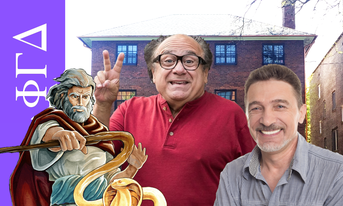Admin Accuses GSU of Taking Free Speech Too Far
By Breck Radulovic and Dan Lastres
Oct. 20, 2017
After years of successfully stymying grad students’ efforts to unionize, the administration was dealt a shocking defeat. Graduate students at the University of Chicago voted 1103 to 479 to unionize, and while GSU is celebrating a big win, administrators are wisely admonishing them for “taking this whole free speech thing too far.”
In an email sent to graduate students following Thursday’s vote tally, President Robert Zimmar and Provost Daniel Diermeier condemned grad students for their “gross over-application of the school’s steadfast and unassailable commitment to free speech.” “It verges on perversion,” the email continues, “Our free speech policy is supposed to atomize the student body and show students that the worst thing they can do is agree with each other and disagree with us.”
An unnamed source within Levi Hall confirmed that other administrators are also pointing fingers at the school’s free speech doctrine for fostering an environment where this vote could take place. They told the Dealer, “If we had realized the implications of granting free speech to grad students, we would have never endorsed it. In fact, it really doesn’t make sense, allowing your underpaid and dissatisfied workers to just meet in groups and talk about their employers, whoops, educators and mentors.”
There are also whisperings around the university’s ivory break rooms that Dean Jay Ellison has been ostracized by other deans who felt that his 2016 letter was too equivocal in granting free speech rights to those outside the administration. Ellison, to his credit, had planned for this possibility in an early draft of the letter. “The first draft of the famous safe space letter stipulated that its edicts extended only to those working salaried positions in Levi Hall, which is, to be clear, a secure space.” However, Ellison failed to save the word doc in question. As a result, the entirely rewritten and unedited final letter that was released did not advocate for the kind of authoritarian discourse structures that might have prevented this debacle in the first place.




